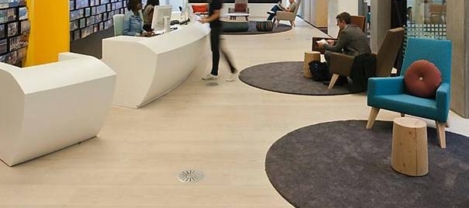January 18, 2016
Firms demanding more data about workplaces…and they’re about to get it 0
 Companies are increasingly focussed on generating workplace data as they seek to make better decisions about the ways their real estate supports their key organisational objectives. That is one of the key findings of the latest European Occupier Survey from property consultants CBRE (login required). The good news (or bad news, depending on your point of view) is they’re about to get it in spades, according to another study from researchers International Data Corporation which found that there will be a huge surge in the availability of Big Data infrastructure in EMEA countries over the next four years. The acquisition of data about buildings and their inhabitants remains a troublesome issue, especially when executives do things like introduce sensors to monitor working patterns of employees without their knowledge, as bosses at The Telegraph found in a very public way recently.
Companies are increasingly focussed on generating workplace data as they seek to make better decisions about the ways their real estate supports their key organisational objectives. That is one of the key findings of the latest European Occupier Survey from property consultants CBRE (login required). The good news (or bad news, depending on your point of view) is they’re about to get it in spades, according to another study from researchers International Data Corporation which found that there will be a huge surge in the availability of Big Data infrastructure in EMEA countries over the next four years. The acquisition of data about buildings and their inhabitants remains a troublesome issue, especially when executives do things like introduce sensors to monitor working patterns of employees without their knowledge, as bosses at The Telegraph found in a very public way recently.

































January 12, 2016
A cynic’s field guide to workplace terminology, part three 0
by Simon Heath • Comment, Facilities management, Technology, Workplace, Workplace design
(more…)